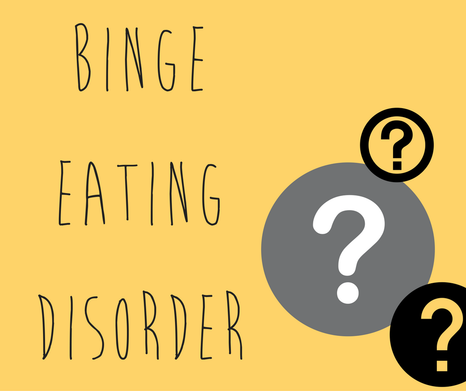|
The way we view our bodies has a huge impact on how we feel about ourselves and how we live our lives. Our perception of our bodies and the bodies of others starts to take shape early, and can be influenced greatly by our family’s values and beliefs, but also by ours peers and broader influences like the media. Unfortunately, from a young age children begin to show dissatisfaction and concern about their appearance and weight, which can then lead to engaging in behaviours that attempt to control or change their young bodies. By the end of the teenage years, most young people have been on a diet of some kind. As adults, the majority of women wish to lose weight (even those who are in the healthy weight range!) and approximately two-thirds of women withdraw from activities due to feeling negatively about their bodies. So how can we move towards being more accepting of our bodies and feeling better about ourselves? Here are some tips on how to build a better relationship with your body:
Eating disorders are a serious mental illness that affect many individuals of all ages, but they are especially prevalent and dangerous among teenagers. Research shows that 75% of people diagnosed with Anorexia Nervosa and 83% of people diagnosed with Bulimia Nervosa are between 12 and 25 years of age.* The outcomes of an eating disorder can cause serious harm. There are several types of eating disorders, but some of the most common are anorexia nervosa, bulimia nervosa, and binge eating disorder. Below is a brief overview of each disorder and some common warning signs:
*Volpe, U., Tortorella, A., Manchia, M., Monteleone, A.M., Albert, U., & Monteleone, P. (2016). Eating disorders: What age at onset? Psychiatry Research. April. 225-227. If you or your child are struggling with any of these warning signs, you might be feeling worried and unsure of what to do. Remember that you are not alone and there is support to guide you through this tricky time. Visit your GP to start your journey to eating disorder management and recovery, and then book an appointment with one of our psychologists or dietitians for therapy. Instilling positive relationships with food in children can reduce the risk of long term health issues including obesity, negative body image and type 2 diabetes. Here are some tips to help children build positive relationships with food:
Ultimately, all food can be and should be enjoyed in moderation. The only time you should actively avoid a food is when you have a specific food allergy or food intolerance. The word “binge” seems to have become popular in the media and in general conversation. What started as a word to describe excessive drinking or eating has now even evolved to include binge watching of TV programs or films or engaging in any activity too much.
While the term “bingeing” is often used casually to refer to indulging excessively in something enjoyable, people who engage in binge eating on a regular basis or to an extreme level find this experience to be far from pleasant. So what exactly is binge eating, and how do we know if it is becoming a problem? A binge eating episode involves: Eating a very large amount of food within a short period of time (e.g. within 2 hours) AND A sense of loss of control while eating (e.g. feeling unable to stop yourself) Feeling out of control while eating a large amount distinguishes a binge from general overeating. For example, having that second or third helping at a special dinner or eating a lot of sweets and snacks during a movie may be considered a large amount of food eaten in a short period of time, but if you knew you could stop during that process and the eating didn’t feel uncontrollable, these examples wouldn’t be considered binge eating. For those who experience binge eating regularly, eating such large amounts in an uncontrollable way evokes strong feelings of guilt and shame and binges are often highly distressing. This typically leads to secrecy and attempts to hide evidence of binge eating. Bingeing may be used to cope with strong emotions such as anxiety or depression or may be a direct response to severe dieting or restrictive eating. If you or someone you know is engaging in binge eating at least once per week or is extremely distressed by their behaviour, seeking support and professional advice is recommended. Other signs that someone may be experiencing binge eating include:
There may also be signs of vomiting or other compensatory behaviours, e.g. swollen cheeks/jaw, going to the bathroom after meals, excessive exercising, using diet pills or laxatives etc., but this is not always the case. Binge eating can occur in all eating disorders and may or may not be followed by compensatory behaviours. Despite the term being used casually, binge eating is a serious issue often associated with other eating disorder symptoms or psychological issues, such as anxiety or depression. There are a number of medical complications that can be associated with frequent or severe binge eating, such as digestive issues, high blood pressure or cholesterol, kidney problems and osteoarthritis. Risks associated with compensatory behaviours following a binge also include damage to teeth and digestive organs, disruption to menstrual cycle, and heart complications, such as irregular or slow heartbeat which can lead to heightened risk of heart failure. For further information on binge eating and eating disorders, please visit: www.nedc.com.au or www.eatingdisorders.org.au Recovery from binge eating and eating disorders is possible. There are several effective treatments available to overcome binge eating. It may feel difficult to share your experiences with a health professional, but doing so is the first step towards getting support and feeling better. |
Categories
All
|
Hopscotch & HarmonyAt Hopscotch & Harmony Psychology, you can expect compassionate care and evidence-based guidance on your journey to wellness.
With clinics in Werribee and Belmont, as well as providing online counselling to clients who live throughout Australia, our dedicated team of psychologists and dietitians are committed to providing support to children, teenagers and adults. With a focus on understanding your unique needs, we offer tailored solutions to foster growth and resilience. Trust in our experience and dedication as we work together towards your well-being. Welcome to a place where healing begins and possibilities abound. |
Our services |
Contact usHopscotch & Harmony
Child, Teen and Adult Psychology Our Locations:
WERRIBEE: 1/167-179 Shaws Rd
BELMONT: 92 Roslyn Rd AUSTRALIA-WIDE: Online counselling |
Hopscotch and Harmony respectfully recognise the Aboriginal and Torres Strait Islander people as the first Peoples of the continent now called Australia.
We acknowledge the Bunurong and Wadawurrung people of the Kulin Nation, the traditional owners of the land on which we work, and pay our respects to their Elders, past, present and emerging.
© 2024 Hopscotch and Harmony Pty Ltd





 RSS Feed
RSS Feed
